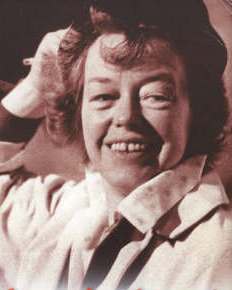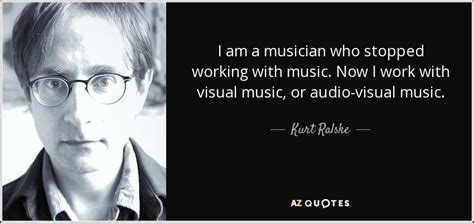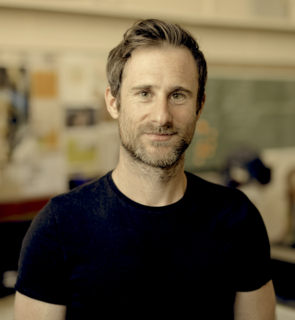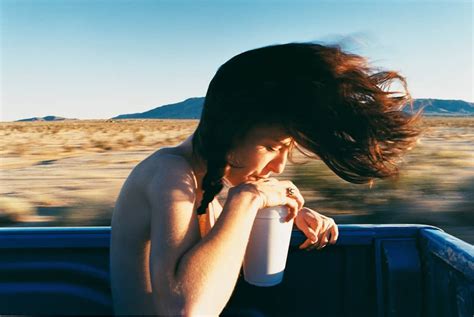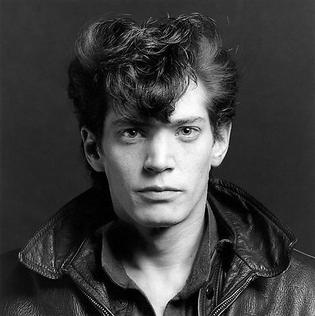A Quote by Diane Arbus
Everybody has that thing where they need to look one way but they come out looking another way and that's what people observe. You see someone on the street and essentially what you notice about them is the flaw. It's just extraordinary that we should have been given these peculiarities. Something is ironic in the world and it has to do with the fact that what you intend never comes out like you intend it.
Related Quotes
The men who go out the scientists who go out, they have so much fun on the way that when they get there well it's done. So they're looking for another thing. You see the objective may remain the same - the search - but you must get lost on the way, get stupid to my mind, this is what you do in theatre; a team of people go out to look for something, they find, maybe, something else.
I'm growing up in Detroit, Michigan, both of my parents were gun owners, and that they taught us how to safely and carefully utilize them, because we had businesses, and they showed us out of a sense of protection. But that was something that was used to never use a gun unless you intend - never play with a gun unless you use it to intend - intend to use it. But it was for protection only.
Every once in a while I have this revelation like, "Wow, a hundred years ago the world wasn't black and white." It was in color. Photographed in a certain way, people look from another time. We are just not used to seeing ourselves in that context. Something that's fascinating about photography is you can isolate a moment, tear it out of its context, and see it afresh. Another realization is that, "Wow, there's a big world out there, and people are still doing all sorts of the things that they used to do." We don't just live in iPad land.
Expression is never considered a given, and it is in fact maybe not what's most interesting about making art. Making art, since 1960 or something, is many things: it's a way of doing philosophy, it's a way of opening a dialogue, it's a way of putting a fact or a question out into the world, or a way of drawing people into new relationships, or a way of interrogating history. It's all these other sorts of strategies or techniques or processes that are really interesting and really valuable.
I'm always amused by the way questions are asked. "What did you intend?" That's not even a recognizable verb. You don't intend when you write. You sit down and you're thinking things and dreaming things and someone says something and you think "Ah!" That's how it happens. Intention is not part of the game.
Well, see, I think it's that most people don't like that lonely feeling. People don't like looking up and feeling small or lost. That's what I think prayer is all about. It doesn't matter which stories they believe in, they're all doing the same thing, kind of casting a line out to outer space, like there's something out there to connect to. It's like people make themselves part of something bigger that way, and maybe it makes them less afraid.
You have to be able to observe life as if you were a camera all the time, constantly looking at light and the way that things are placed and the way people hold themselves. You need the ability to see something in someone or something that no one else really sees and be able to bring that to light. Basically, you have to be an obsessive crazy person.
Those who deal in magic learn to see the world in a slightly differnt light than everybody else.you gain a perspective you had considered before. A way of thinking that would never have occurred to you with out exposure to the things a wizard sees and hears.When you look in to some ones eyes you see them in that other light and for just a second they see you in the same way.
I like to look at pictures, all kinds. And all those things you absorb come out subconsciously one way or another. You'll be taking photographs and suddenly know that you have resources from having looked at a lot of them before. There is no way you can avoid this. But this kind of subconscious influence is good, and it certainly can work for one. In fact, the more pictures you see, the better you are as a photographer.
Sociopaths are not usually physically violent. A typical sociopath never kills anybody and doesn't look like Charles Manson - they look like you and me and everybody else. You're not looking for someone who's recognizably evil or scary-looking, but rather someone who looks normal. Another lynchpin is dishonesty. Lying for the sake of lying. Lying just to see whether you can trick people. And sometimes telling larger lies to get larger effects.

